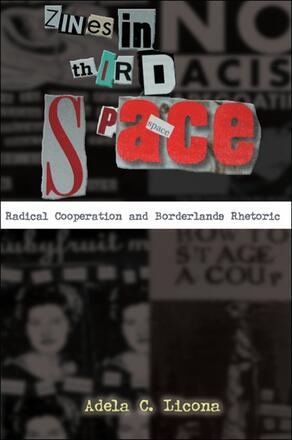
Zines in Third Space
Radical Cooperation and Borderlands Rhetoric
Alternative formats available from:
Develops third-space theory by engaging with zines produced by feminists and queers of color.
Description
Zines in Third Space develops third-space theory with a practical engagement in the subcultural space of zines as alternative media produced specifically by feminists and queers of color. Adela C. Licona explores how borderlands rhetorics function in feminist and queer of-color zines to challenge dominant knowledges as well as normativitizing mis/representations. Licona characterizes these zines as third-space sites of borderlands rhetorics revealing dissident performances, disruptive rhetorical acts, and coalitions that effect new cultural, political, economic, and sexual configurations.
Adela C. Licona is Associate Professor of English at the University of Arizona. She is the coeditor (with Robbin D. Crabtree and David Alan Sapp) of Feminist Pedagogy: Looking Back to Move Forward.
Reviews
"One of the primary reasons this book is so valuable is because it demonstrates how community literacy is promoted, engaged, and circulated in the multimodal genre of zines … Zines in Third Space models academic scholarship that recognizes and values community as a site for the sharing and learning of new knowledge and literacy practices … Licona's practice of word play is a performance of the very borderlands rhetorics she identifies and analyzes in zines." — Community Literacy Journal
"Zines in Third Space throws light upon an important and often neglected space of alternative culture by looking at the media generated by people of color, who both use the subcultural media to explore and articulate their ideas and lives in a way they feel cannot be done through more mainstream channels, yet also understand (and articulate) the ways in which the white, middle-class dominated subcultures create new sets of constraints and limitations. Within subcultural studies, and media studies in general, this is a critical area of study. The author knows the world of which she speaks." — Stephen Duncombe, author of Notes from Underground: Zines and the Politics of Alternative Culture